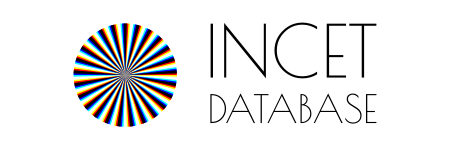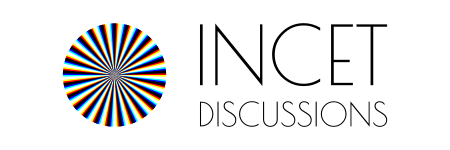 Web Content Display
Web Content Display
 Web Content Display
Web Content Display
The goal of the Interdisciplinary Centre for Ethics (INCET) at the Jagiellonian University is to encourage and support research activities in philosophy and ethics, in particular research on the classic bioethical dilemmas (e.g. reproductive or end-of-life decisions, organ transplantation, clinical decision making) and on topics that emerge from recent technological, social, and scientific developments (e.g. regulating scientific research, genetic engineering, human enhancement, new healthcare and reproductive technologies, evidence based medicine, preventive medicine, big data, artificial intelligence, algorithmic decision-making). See more information about INCET
 Web Content Display
Web Content Display
News
seminar
25 of April 2024 - Bartosz Janik - Rules and interpretation: behavioral account
We have the pleasure to invite you to another research seminar. Bartosz Janik is going to give a talk: "Rules and interpretation: behavioral account”. The seminar will take place on the 25th of April exceptionally at 3:30 p.m. in the room 25 on Grodzka Street and via MS Teams.
seminar
18 of April 2024 – Tomasz Krawczyk – Meaningful inclusion? Influence of Research Institutions on Epistemic Injustice in Public Involvement
We have the pleasure to invite you to another research seminar. Tomasz Krawczyk is going to give a talk: "Meaningful inclusion?
Influence of Research Institutions on Epistemic Injustice in Public Involvement”. The seminar will take place on the 18th of April at 5:30 p.m. in the room 25 on Grodzka Street and via MS Teams.
seminar
11th of April 2024 — Jakub Petri — Communities and Artistic Participation in Hybrid Environment
Interdisciplinary Centre for Ethics (INCET) UJ invites for its next research seminar enitled: "Communities and Artistic Participation in Hybrid Environment" by Jakub Petri. The meeting takes place on the 11th of April 2024 r. at 5.00 p.m., Grodzka 52, room 25 and via Teams platform.
seminar
4th of April 2024 — Edmond Awad — Online Serious Games as a Tool to Study Value Disagreement
Interdisciplinary Centre for Ethics (INCET) UJ invites for its next research seminar enitled: "Online Serious Games as a Tool to Study Value Disagreement" by Edmond Awad (University of Oxford). The meeting takes place on the 4th of April 2024 r. at 5.30 p.m., Grodzka 52, room 25 and via Teams platform.
seminar
7th of March 2024 – Maciej Próchnicki – The Robin Hood effect: The effect of income on perceived fairness of mutual compensation in tort damages
Interdisciplinary Centre for Ethics UJ (INCET) invites for its next research seminar entitled "The Robin Hood effect: The effect of income on perceived fairness of mutual compensation in tort damages" by Maciej Próchnicki.
The meeting takes place on the 7th of March 2024 r. 5:30, Grodzkiej 52, room 25, Kraków and via Teams
seminar
29th of February 2024 – Vilius Dranseika – What Does Bioethics Engage With? A Case Study in Citation Analysis
INCET invites for its next research seminar entitled "What Does Bioethics Engage With? A Case Study in Citation Analysis" by Vilius Dranseika. The meeting takes place on 29th of February at 5:30 p.m., room 25, Grodzka 52 and via MS Teams.
"Diametros" - call for papers for a special issue
Diametros invites scholars and researchers to contribute to a special issue: "Bioethics meets political philosophy". The deadline is the 30th of June 2024.
 Web Content Display
Web Content Display
Recent publications
The Precautionary Principle and Expert Disagreement - a new paper by Lee Elkin
The Precautionary Principle is typically construed as a conservative decision rule aimed at preventing harm. But Martin Peterson has argued that the principle is better understood as an epistemic rule, guiding decision-makers in forming beliefs rather than choosing among possible acts. On the epistemic view, he claims there is a principle concerning expert disagreement underlying precautionary-based reasoning called the ecumenical principle.
Are There Cross-Cultural Legal Principles? Modal Reasoning Uncovers Procedural Constraints on Law - a new publication co-authored by Piotr Bystranowski and Vilius Dranseika
Despite pervasive variation in the content of laws, legal theorists and anthropologists have argued that laws share certain abstract features and even speculated that law may be a human universal. In the present report, we evaluate this thesis through an experiment administered in 11 different countries. Are there cross-cultural principles of law?
Do Formalist Judges Abide By Their Abstract Principles? A Two-Country Study in Adjudication - a new publication co-authored by Piotr Bystranowski
Recent literature in experimental philosophy has postulated the existence of the abstract/concrete paradox (ACP): the tendency to activate inconsistent intuitions (and generate inconsistent judgment) depending on whether a problem to be analyzed is framed in abstract terms or is described as a concrete case. One recent study supports the thesis that this effect influences judicial decision-making (...)
Resolving empirical controversies with mechanistic evidence - a new publication by Mariusz Maziarz
The results of econometric modeling are fragile in the sense that minor changes in estimation techniques or sample can lead to statistical models that support inconsistent causal hypotheses. The fragility of econometric results undermines making conclusive inferences from the empirical literature. I argue that the program of evidential pluralism, which originated in the context of medicine and encapsulates to the normative reading of the Russo-Williamson Thesis that causal claims need the support of both difference-making and mechanistic evidence (...)
Can I Feel Your Pain? The Biological and Socio-Cognitive Factors Shaping People’s Empathy with Social Robots - a new article by Joanna Malinowska
This paper discuss the phenomenon of empathy in social robotics and is divided into three main parts. Initially, I analyse whether it is correct to use this concept to study and describe people’s reactions to robots. I present arguments in favour of the position that people actually do empathise with robots. I also consider what circumstances shape human empathy with these entities. I propose that two basic classes of such factors be distinguished: biological and socio-cognitive. (...)
Conscience and the Burden Inquiry—What and Why Should be Investigated in Exemption Cases? - a new publication by Wojciech Ciszewski
The article focuses on a crucial segment of a discussion regarding the legitimacy of conscientious exemptions, namely the burden inquiry. I argue that the main justifications advanced for the incommensurable religious costs account and the subjective religious costs account do not stand up to critical scrutiny, and that the objective religious costs account is the most plausible position in this debate.
Anchoring effect in legal decision-making: A meta-analysis - a new publication co-authored by Piotr Bystranowski
We conducted a meta-analysis to examine whether numeric decision-making in law is susceptible to the effect of (possibly arbitrary) values present in the decision contexts (anchoring effect) and to investigate which factors might moderate this effect.
Authenticity, Self-Defining Memories, and the Direction of Change - peer commentary by Vilius Dranseika in AJOB Neuroscience
Vilius Dranseika wrote an open peer commentary to Zawadzki and Adamczyk's target article: "Personality and Authenticity in Light of the Memory-Modifying Potential of Optogenetics". The article and commentaries were published in the new issue of AJOB Neuroscience.
Assessing the quality of evidence from epidemiological agent-based models for the COVID-19 pandemic - a new article by Mariusz Maziarz and Martin Zach
In this short paper we raise the issue of assessing the quality of evidence from epidemiological agent-based models with respect to the problem of confounding. The unprecedented spread of the novel coronavirus requires governments worldwide to make decisions regarding mitigation and suppression measures. Some of these decisions have been based on agent-based models (ABMs) (Adam 2020), which are an emerging group of epidemiological models that supplement the traditional compartmental models.
Tort liability without taking responsibility: A challenge to David Enoch’s idea of taking tort liability - a new article by Maciej Juzaszek
If someone denied the existence of resultant moral luck, s/he would probably argue that the no-fault compensation system is fairer than a standard account of tort liability. Agents are not responsible for the consequences and harms they cause but only for the risks they create. David Enoch recently argued that such an approach lacks personal liability taken on by agents. I believe that Enoch’s position is incoherent and taking responsibility is irrelevant for tort liability.
A paper co-authored by Vilius Dranseika on the Oxford University Press 'Best of 2020' list!
A paper co-authored by Vilius Dranseika - a researcher in the BIOUNCERTAINTY project at the Interdisciplinary Centre for Ethics at the Jagiellonian University - has been proclaimed one of the three best articles published in The British Journal of Aesthetics in 2020. Congratulations!



